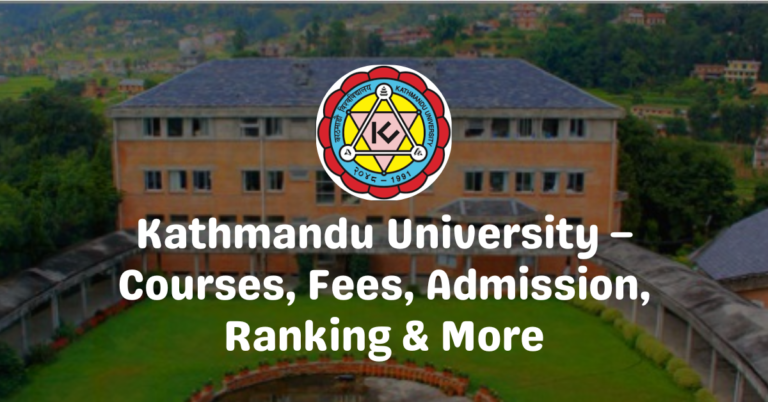Bachelor of Civil Engineering – Complete Guide to Courses, Colleges, Scope, and Career
Introduction


Why Civil Engineering Matters
Nepal is a country that sits at the intersection of natural beauty and tectonic turbulence. From majestic mountains to deep valleys, the land is constantly reshaping—requiring continuous development and redevelopment of infrastructure. Civil engineering, in this context, becomes not just a profession but a national necessity. Every bridge constructed, road laid, dam built, or building erected contributes to the resilience and growth of Nepal’s economy.
In the last decade, Nepal has seen a massive push towards infrastructure development. The government’s focus on roads, hydropower, urban housing, and disaster-resilient buildings has led to an ever-increasing demand for skilled civil engineers. Add to that the growing private sector engagement in real estate and infrastructure, and it’s clear that civil engineers are becoming central to Nepal’s modernization.
Growing Demand for Infrastructure
Nepal’s infrastructure was heavily impacted by the 2015 earthquake, highlighting the critical need for trained civil engineers who understand seismic design and disaster mitigation. Roads, tunnels, smart urban spaces, and bridges are constantly being developed and reconstructed across provinces, especially with Nepal’s federal structure in full swing.
Moreover, initiatives like the Belt and Road Initiative (BRI), the Melamchi water supply project, hydroelectric development, and the Kathmandu-Tarai fast track expressway have one thing in common—they all need civil engineers.
With that kind of scope, the Bachelor of Civil Engineering in Nepal isn’t just a degree. It’s a gateway into a profession that literally shapes the nation’s future.
What is a Bachelor of Civil Engineering?
Definition & Program Overview
A Bachelor of Civil Engineering is a four-year undergraduate program designed to equip students with the skills to plan, design, construct, and maintain physical infrastructure. The course is designed to balance theoretical foundations with real-world applications—so students graduate with a toolkit that allows them to tackle the country’s engineering challenges.
The course combines mathematics, physics, geology, material science, and computer-aided design (CAD) to develop professionals who can contribute to Nepal’s physical development. From designing earthquake-resistant structures to managing large-scale construction projects, the program is multidisciplinary.
In Nepal, this degree is commonly referred to as BE Civil, and it is regulated by the Nepal Engineering Council (NEC). It is typically offered by institutions affiliated with major universities such as Tribhuvan University (TU), Kathmandu University (KU), Pokhara University (PoU), and Purbanchal University (PU).
Duration & Curriculum Structure
The BE Civil program is spread over 4 years, divided into 8 semesters. Each semester consists of about 6 to 7 subjects, including lectures, laboratory sessions, field visits, and project work. The final year usually includes a thesis project or capstone that integrates the student’s learning in a real-world engineering problem.
The program structure is designed to:
- Build strong foundational skills in the first two years (mathematics, mechanics, computer programming, surveying).
- Offer specialized knowledge in structural, transportation, environmental, and water resources engineering in the last two years.
- Develop professional communication, project management, and teamwork skills.
By the end of the program, graduates are eligible to sit for the Nepal Engineering Council License Examination, a mandatory certification to practice as a civil engineer in Nepal.
Eligibility Criteria for BE Civil
Academic Requirements
To be eligible for the Bachelor of Civil Engineering program in Nepal, students must have completed their +2 Science (Grade 12) or A-Level or equivalent with a major focus on Physics, Chemistry, and Mathematics. A minimum GPA (which varies by institution) is usually required.
- For TU-affiliated colleges: Minimum of C grades in all subjects and at least a 45% aggregate in PCM.
- For KU: Students must pass the KU entrance exam regardless of their board.
- For PoU and PU: Typically follow similar eligibility guidelines as TU.
Applicants from CTEVT or diploma backgrounds in engineering can also apply through lateral entry, provided they meet certain academic requirements and pass the entrance exams.
Entrance Exam Details
Getting into a civil engineering college in Nepal is highly competitive. Every university conducts its own entrance examination, which typically includes:
- Mathematics (advanced level)
- Physics
- Chemistry
- English and General Knowledge (in some cases)
Key entrance exams include:
- IOE Entrance Exam (for TU)
- KU Entrance Exam
- PoU and PU Entrance Exams
Thousands of students apply every year, but only a few hundred secure a seat, especially in top colleges like Pulchowk Campus. That’s why preparation through bridge courses, entrance preparation classes, and self-study is vital.
The entrance exams not only test your academic knowledge but also your time management and problem-solving skills—both of which are crucial for engineers in the field.
Top Colleges for Civil Engineering
Tribhuvan University Affiliated Colleges
Tribhuvan University (TU) is Nepal’s oldest and most prestigious public university, with its Institute of Engineering (IOE) offering the country’s most sought-after BE Civil programs.
Top TU-affiliated civil engineering colleges include:
- Pulchowk Campus – The most competitive and prestigious
- Thapathali Campus
- Purwanchal Campus
- Paschimanchal Campus
These campuses have better infrastructure, experienced faculty, and strong alumni networks. Pulchowk in particular is known for producing top engineers who go on to work in government and international projects.
Other Universities & Private Colleges
Apart from TU, several other universities offer BE Civil:
- Kathmandu University (KU) – Known for its rigorous curriculum and international collaborations.
- Pokhara University (PoU) – Offers civil engineering in private and constituent colleges such as Gandaki College of Engineering.
- Purbanchal University (PU) – Includes Himalaya College of Engineering and others.
Private colleges affiliated with foreign universities like London Metropolitan University also offer Civil Engineering, though their recognition may vary locally.
Admission Competitiveness
Admission is cut-throat, especially in public institutions. Pulchowk Campus, for example, has acceptance rates as low as 5%, making it more competitive than some Ivy League schools in relative terms.
Students need to score extremely well in entrance exams and maintain high school academic consistency. As such, many aspiring engineers join full-time entrance preparation centers immediately after Grade 12.
Course Curriculum of Civil Engineering
Semester-Wise Subject Breakdown
The BE Civil curriculum in Nepal is designed to progressively build engineering knowledge from basic to advanced levels.
| Semester | Subjects |
|---|---|
| I | – Engineering Mathematics-I – Computer Programming – Engineering Drawing-I – Engineering Chemistry – Fundamentals of Thermodynamics & Heat Transfer – Workshop Technology |
| II | – Engineering Mathematics-II – Engineering Drawing-II – Basic Electronics Engineering – Engineering Physics – Applied Mechanics – Basic Electrical Engineering |
| III | – Engineering Mathematics-III – Applied Mechanics (Dynamics) – Strength of Materials – Engineering Geology-I – Fluid Mechanics – Surveying-I – Civil Engineering Materials |
| IV | – Hydraulics – Surveying-II – Soil Mechanics – Probability and Statistics – Building Drawing – Engineering Geology-II – Theory of Structure-I |
| V | – Numerical Methods – Theory of Structure-II – Foundation Engineering – Survey Camp – Engineering Hydrology – Water Supply Engineering – Concrete Technology and Masonry Structures |
| VI | – Design of Steel and Timber Structure – Communication English – Building Technology – Engineering Economics – Sanitary Engineering – Transportation Engineering-I – Irrigation and Drainage Engineering |
| VII | – Project Engineering – Design of RCC Structure – Transportation Engineering-II – Hydropower Engineering – Estimating and Costing – Elective I – Project (Part-I) |
| VIII | – Computational Techniques in Civil Engineering – Engineering Professional Practice – Technology, Environment and Society – Construction Management – Project (Part-II) – Elective II – Elective III |
Core vs Elective Courses
While the core courses are compulsory for all students, elective courses allow students to specialize in areas they find interesting, such as:
- Earthquake-resistant design
- Geotechnical engineering
- Water resources management
- Urban infrastructure
Electives give students a competitive edge based on the sector they wish to join after graduation.
Lab and Field Work Importance
Engineering is incomplete without hands-on application. Hence, civil engineering in Nepal includes numerous:
- Lab experiments (material testing, fluid dynamics, etc.)
- Field visits (construction sites, survey camps)
- Mini-projects and a full thesis project in the final semester
These ensure students are industry-ready and capable of handling real-world challenges.
Scope of Civil Engineering
Public Sector Opportunities
One of the most stable and prestigious career paths for civil engineers in Nepal lies in the public sector. Government projects across the nation consistently demand engineers to oversee the planning, design, construction, and maintenance of public infrastructure.
Whether it’s highways under the Department of Roads (DoR), water projects under the Ministry of Water Supply, or hydropower stations under the Nepal Electricity Authority (NEA), the government is a major employer of civil engineers. Municipalities also regularly recruit engineers for urban planning and infrastructure development.
The Public Service Commission (PSC) or Lok Sewa Aayog conducts engineering service exams, which thousands of engineers appear for annually. Once selected, engineers can work in positions that influence national development strategies.
Private Sector Growth
Nepal’s private construction industry is booming. From housing and apartments to shopping complexes and industrial buildings, the demand for private civil engineering services is on the rise.
Private construction companies like Kalika Construction, Ashish Nirman Sewa, CE Construction, and others offer lucrative jobs to fresh and experienced engineers. Project engineers, site engineers, quantity surveyors, and quality control managers are roles frequently advertised.
Consulting firms also play a vital role, offering services in planning, environmental assessments, structural analysis, and construction supervision. These roles typically demand high skills and come with attractive salaries.
Entrepreneurship in Civil Engineering
Who says engineers have to be job seekers? In Nepal, many civil engineering graduates are turning into entrepreneurs—starting construction firms, consultancy services, or material testing labs.
Some graduates venture into software development for civil engineering applications like quantity estimation tools or project management platforms tailored for Nepali projects. Others start startups focusing on green construction, earthquake-resistant housing, or prefabricated building technologies.
With increasing access to finance and government subsidies for startups, the entrepreneurial landscape for civil engineers is quite promising.
Job Opportunities After Civil Engineering
Top Hiring Industries
Once you’ve earned your BE Civil degree, a world of opportunities opens up across various industries. Some of the major sectors hiring civil engineers in Nepal include:
- Construction and Real Estate: From residential buildings to commercial complexes.
- Hydropower and Renewable Energy: A growing sector with constant demand for civil engineers.
- Roads and Transport: Government and donor-funded road projects.
- Water Supply and Sanitation: Projects under the Ministry of Water Supply.
- Disaster Management and Rehabilitation: Especially post-earthquake and in flood-prone areas.
- NGOs and INGOs: Many international organizations require engineers for infrastructure projects in rural areas.
These industries offer positions such as Site Engineer, Planning Engineer, Project Manager, Structural Analyst, and Quality Control Officer.
Salary Expectations
Salaries vary based on experience, skill, and the employer’s financial capability. Here’s a general overview:
| Job Role | Experience | Monthly Salary (NPR) |
|---|---|---|
| Entry-Level Site Engineer | 0–1 year | 18,000 – 30,000 |
| Mid-Level Engineer | 2–5 years | 30,000 – 70,000 |
| Project Manager | 5+ years | 80,000 – 200,000+ |
| Government Engineer | Based on Pay Grade | 35,000 – 90,000+ |
Many engineers also take freelance projects or side jobs like drawing house plans, quantity estimations, or supervising small constructions—adding extra income.
Abroad Opportunities
Nepali civil engineers are in high demand internationally, especially in:
- Middle East: Countries like Qatar, UAE, and Saudi Arabia hire Nepali engineers for infrastructure megaprojects.
- Australia & Canada: For those with experience and NEC license, immigration opportunities are available.
- Japan & Korea: Technical training and internships for young engineers.
- India: Job placements in large corporations like L&T and Tata Projects are possible with proper networking.
Getting international experience can significantly boost your career and future income potential.
Civil Engineering in Government Jobs
Engineering Services by PSC
Every year, Nepal’s Public Service Commission (Lok Sewa Aayog) announces vacancies under its Engineering Services. Positions include Civil Sub-Engineer, Engineer (Class III), and Senior Engineer (Class II). These jobs are highly competitive and respected.
The selection process involves:
- Written Exams (General Knowledge, Technical Subjects, English)
- Interview
- Performance Evaluation
Once selected, engineers work in departments such as Urban Development, Water Supply, Irrigation, Roads, and more. These roles often include planning and executing public infrastructure projects.
Government jobs offer:
- Job security
- Retirement benefits
- Regular promotions
- Opportunities for foreign training
Municipal and Federal Projects
Apart from federal jobs, local governments (municipalities and rural municipalities) also hire engineers to manage local development works. These include:
- Road construction and maintenance
- School and hospital buildings
- Water supply systems
- Drainage and sanitation projects
The federal system has increased engineering jobs significantly, especially in rural areas where development is just picking up pace.
Many engineers are hired on a contractual basis for specific projects. While these contracts might not offer long-term benefits, they do provide practical exposure and decent remuneration.
Scholarships and Financial Aids
Government Scholarships
The Government of Nepal provides merit-based and need-based scholarships to students pursuing civil engineering. For example:
- IOE Scholarships: Around 10% of seats are reserved as scholarships in IOE constituent and affiliated campuses.
- Ministry of Education Quotas: Reserved seats for marginalized communities and female students.
- CTEVT Scholarships: For diploma-to-degree lateral entries.
University Level Scholarships
Many universities and private colleges offer their own scholarship schemes:
- Kathmandu University provides need-based and performance-based scholarships.
- Purbanchal and Pokhara Universities offer tuition waivers to top-ranked students.
- Private colleges offer entrance topper discounts, semester-wise performance rewards, and financial hardship reliefs.
NGOs and International Aids
Several international organizations and NGOs operating in Nepal provide scholarships, especially for students from underprivileged backgrounds or rural regions. Some examples include:
- USAID Scholarships
- UNESCO & UNDP educational grants
- Asian Development Bank’s education aid programs
In addition, students can apply for foreign aid scholarships to study civil engineering abroad, especially in China, India, and European countries under exchange programs.
Challenges Faced by Civil Engineering Students
Lack of Infrastructure
Despite the growing demand for civil engineers, many colleges in Nepal still lack state-of-the-art laboratories, simulation tools, and modern teaching facilities. This can hamper students’ ability to apply theoretical knowledge practically.
Moreover, field exposure is sometimes limited to a few visits or short internships, which does not truly reflect real-world engineering challenges.
Theoretical vs Practical Learning Gaps
One of the most common criticisms from students and employers alike is the disconnect between classroom teaching and real-world applications. While students are excellent in solving mathematical problems, they might struggle when faced with a construction site issue.
Many graduates report difficulties in:
- Reading blueprints
- Estimating construction costs
- Understanding construction sequences
- Communicating with laborers and contractors
The curriculum, although improving, often leans heavily on theory rather than hands-on experience. This gap must be addressed through curriculum reforms and better college-industry partnerships.
Internship and Industrial Exposure
Mandatory Internships
In Nepal, most universities offering the Bachelor of Civil Engineering program have made internships a mandatory part of the curriculum—usually during the 7th or 8th semester. This step is crucial to ensure that students gain hands-on experience in real construction sites, laboratories, and offices before graduating.
Internships typically last for 4 to 8 weeks, where students get exposure to:
- Construction site supervision
- Quantity and cost estimation
- Structural detailing
- Surveying and leveling
- Project documentation
These internships are evaluated based on reports, field supervisors’ feedback, and final presentations.
Top Construction Companies Offering Internships
Some of Nepal’s most reputed construction and engineering firms regularly offer internships and training programs to civil engineering students. These include:
- Kalika Construction
- CE Construction Pvt. Ltd.
- Ashish Nirman Sewa
- Nepal Hydro & Electric Ltd.
- Build Up Nepal
- Lama Construction
In addition to private firms, government organizations such as the Department of Roads (DoR), Nepal Electricity Authority (NEA), and local municipalities often host interns, especially for field-based work like surveying and project evaluation.
Importance of Industrial Exposure
Internships bridge the gap between academic learning and industry practices. Many students report that their internships are the turning point in their engineering education. Through these experiences, they learn:
- How to communicate effectively on-site
- How to deal with unexpected challenges like material delays or labor shortages
- The importance of safety and compliance
- How real-world project management differs from textbook methods
Students who perform well during internships often secure job offers from the same companies post-graduation, making internships a direct gateway to employment.
Civil Engineering License and Accreditation
NEC License
In Nepal, civil engineers must obtain a professional license from the Nepal Engineering Council (NEC) to legally work as engineers. This licensing system ensures that only qualified individuals practice civil engineering, protecting public safety and maintaining engineering standards.
After completing the Bachelor of Civil Engineering, graduates are required to:
- Register online on the NEC portal
- Submit academic documents
- Appear for the Engineering License Examination
The exam tests knowledge in:
- Structural analysis
- Engineering drawing
- Construction management
- Design of reinforced concrete and steel structures
- Professional ethics and laws
Upon passing, candidates receive a license number and ID, which is often mandatory when applying for government and some private sector jobs.
Importance of Engineering License
Holding a NEC license:
- Legally authorizes engineers to work independently or as consultants
- Is mandatory for government jobs and PSC exams
- Enhances credibility and employability in both local and international markets
- Is often required by insurance and legal firms for validating structural drawings or construction audits
In short, the NEC license isn’t just a legal formality—it’s a mark of trust and professionalism in Nepal’s civil engineering landscape.
Future of Civil Engineering
Smart City Projects
Nepal’s journey toward modernization includes the development of Smart Cities—a concept that relies heavily on civil engineers. Smart roads, efficient drainage, sustainable housing, and energy-efficient buildings are key components, and all of them need civil engineering expertise.
The government has already identified several municipalities for smart development, such as:
- Kathmandu Valley Smart City Master Plan
- Lumbini Smart City Development
- Dharan and Biratnagar modernization projects
Engineers with knowledge of GIS, Building Information Modeling (BIM), and sustainable construction will be highly valued in this transformation.
Climate Resilient Infrastructure
As a country highly vulnerable to natural disasters like earthquakes, landslides, and floods, Nepal is emphasizing climate-resilient infrastructure. Civil engineers are now expected to integrate sustainability, disaster resistance, and environmental protection into every aspect of design and construction.
Projects involving:
- Rainwater harvesting
- Slope stabilization
- Green roads
- Earthquake-resistant housing
are becoming common, requiring a new set of skills and awareness among graduates.
Additionally, hydropower expansion and trans-Himalayan connectivity projects (like dry ports, tunnels, and railways) will shape the next decade of engineering work.
Tips for Aspiring Civil Engineering Students
How to Prepare for Entrance
Getting into a top civil engineering program in Nepal, especially through IOE or KU, is tough. Here are some tips:
- Start preparing during Grade 11 and 12 with a strong focus on PCM (Physics, Chemistry, Math).
- Join reputed entrance preparation institutes like PEA, SEA, or NAME.
- Practice past IOE or KU entrance questions.
- Improve time management and MCQ-solving skills.
- Don’t ignore subjects like English and General Knowledge if they’re part of your entrance syllabus.
Regular mock tests and online quizzes can greatly improve your confidence and speed.
Choosing the Right College
Not all colleges are created equal. Here’s what to consider:
- Faculty expertise: Experienced teachers with practical exposure make a big difference.
- Laboratory and field facilities: Check if the college has updated labs and tools.
- Internship and job placement support: A college that helps with placements is worth the investment.
- Location: Colleges in urban areas may have more project exposure, but rural colleges may offer better scholarships.
- Alumni network: Strong alumni help in building connections and getting referrals.
Lastly, don’t just follow the crowd. Evaluate what you want from the program—some students prefer hands-on learning, while others aim for research or international migration.
Conclusion and Final Thoughts
Is Civil Engineering Worth It?
Absolutely. If you’re someone who enjoys solving real-world problems, working on large projects, and contributing to the nation’s development, then civil engineering is not just a good choice—it’s a noble profession.
Yes, there are challenges—limited practical exposure in some colleges, fierce competition, and the need for continuous learning. But the scope is massive, both within Nepal and abroad. With infrastructure development as a national priority, civil engineers will remain at the forefront of progress.
Whether you dream of building Nepal’s next tallest bridge, designing a flood-proof city, or managing a hydroelectric dam—a Bachelor of Civil Engineering is your first step.
FAQs
1. Which is the best college for Civil Engineering?
Pulchowk Campus under Tribhuvan University is considered the best, followed by KU and other IOE campuses.
2. What is the salary of a civil engineer?
Entry-level salaries range from NPR 18,000 to 30,000 per month, with significant growth based on experience and project size.
3. Is civil engineering a good career in Nepal?
Yes, due to ongoing infrastructure development and increasing investment in construction, it’s a promising field.
4. Do civil engineering students get internships?
Yes, internships are mandatory in most colleges, and there are plenty of opportunities with private firms and government bodies.
5. Can I go abroad after studying civil engineering?
Yes, many graduates migrate to countries like Australia, Canada, Japan, and the Middle East for work or higher education.







